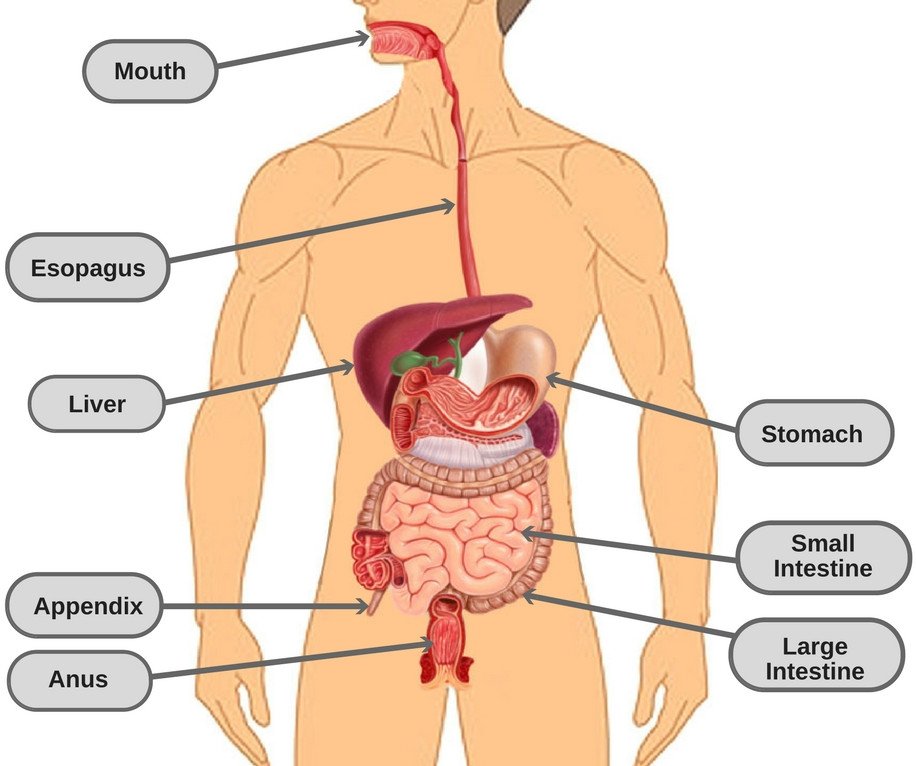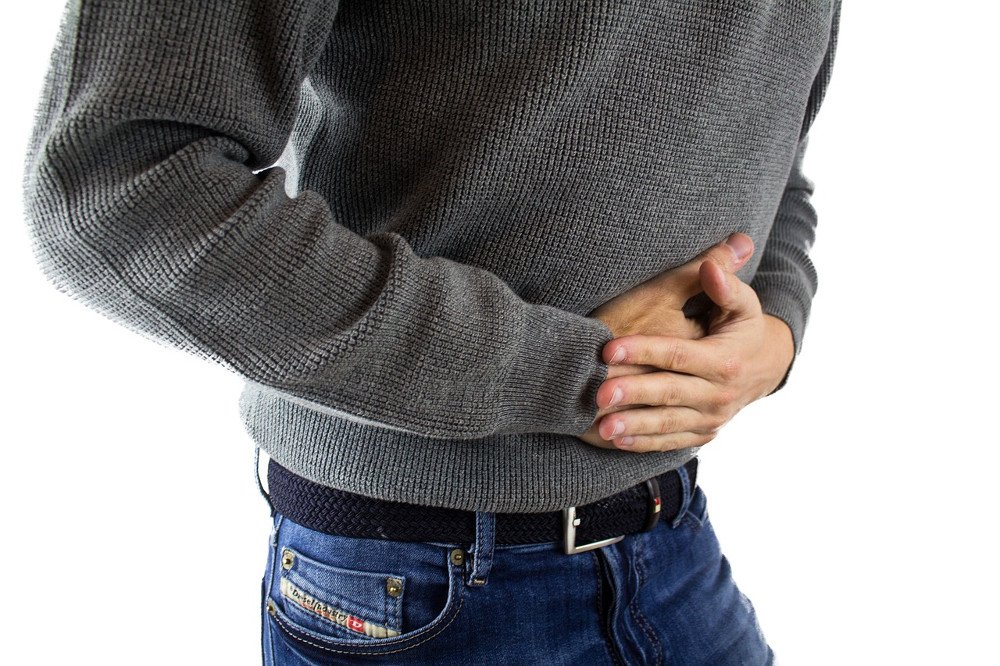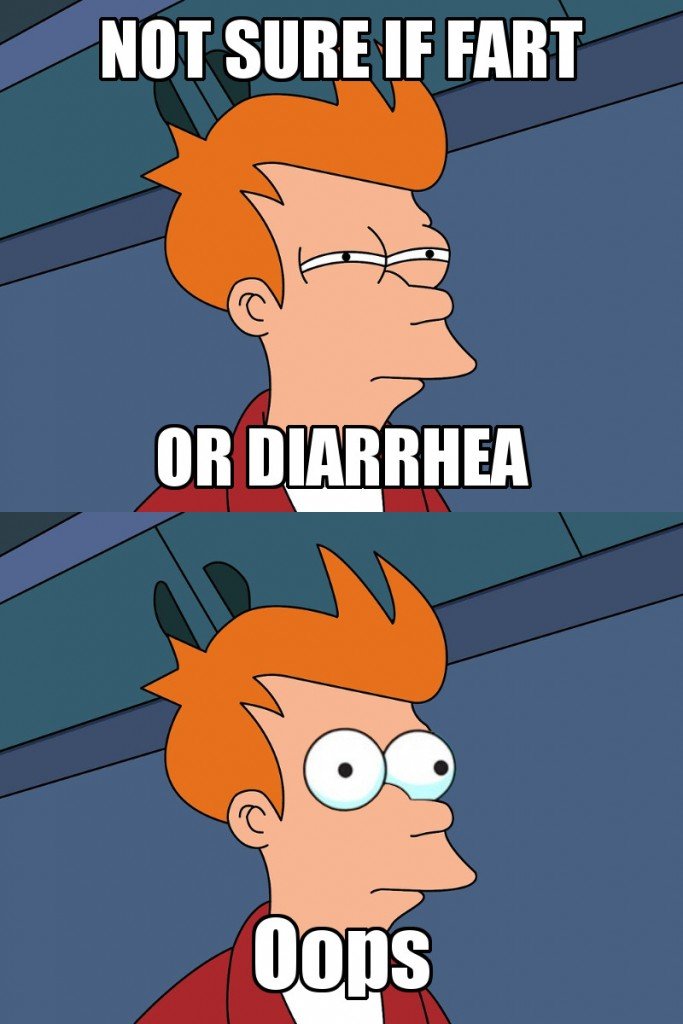Diarrhea happens when there is an imbalance in water secretion and absorption within the body. This excess water causes the stool to pass through quicker than normal.
My fifth-grade textbook said that it takes more than 24 hours to complete digestion. The food is slowly pushed down through our gut, breaking it into its building blocks so that each cell can finally benefit from this tasty food. My 10-year-old brain found all this fascinating.
However, when you have diarrhea, the time it takes for your food to journey from mouth to anus is annoyingly short. Why is that?

During Diarrhea, The Gut Cannot Absorb Nutrients And Water
Diarrhea feels like the food takes a “fast pass” out of the gut. Instead of being systematically broken down and absorbed, as in normal digestion, food gets rushed through the digestive tract and dumped out the other end.
The diarrhea “fast pass” means that the gut can barely disassemble the food.
Under normal conditions, enzymes in the GI tract dismantle large foods, like starch and protein, into smaller chunks like monosaccharides (such as glucose) and amino acids, respectively. Cells of the small intestine must then catch these nutrients. The large intestine absorbs the water, not just from our food and beverage, but also the water that the body secretes to aid digestion.
The diarrhea fast pass doesn’t give the gut cells enough time to catch and absorb these nutrients.
(Note: This is a gross oversimplification of the digestion process; I recommend that you read this article for a more detailed description of digestion.)
This explains the loose and watery poop and why we need to go to the bathroom every few hours when we have diarrhea.

Also Read: How Are Water And Other Fluids Digested In The Human Body?
Types Of Diarrhea And Their Causes
When lactose-intolerant people drink milk, they get diarrhea. When we eat unhygienic food, we get diarrhea. In some rare cases, we have prolonged bouts of diarrhoea when there is a more serious problem. These seem like widely different reasons for the same outcome. As it turns out, something as commonplace as diarrhea occurs for multiple reasons.
Also Read: What Is Lactose Intolerance?
Osmotic Diarrhea
The lactose intolerant type of diarrhea is called osmotic diarrhea.
Lactose, the predominant sugar in milk, associates with or holds water molecules. In someone who doesn’t have lactose intolerance, the enzyme lactase will break down lactose into glucose and galactose (the smaller sugars that make up lactose), which the cells can absorb. This allows the water associated with lactose to be absorbed similarly.

However, lactose intolerant individuals can’t break down lactose because they lack the lactase enzyme. Cells in the small intestine cannot absorb lactose whole, so the lactose retains the water, making the resultant poop watery.
Certain salts and chemicals, such as Epsom salt (MgSO4) and antacids, can also cause osmotic diarrhea.
Such diarrhea, fortunately, only lasts as long as the food remains in the system. Once the milk or salt has left the system, and the person has fasted for a while, the problem usually resolves.
Diarrhea Due To Bacterial Infection
The gut, when threatened with a nasty pathogenic bacteria that you’ve to eat or inflammation, triggers a set of abnormal reactions within the stomach, and a sophisticated suite of nerves (present in the gut) snap into action. This ‘threat’ signal is transmitted to the brain, which hits the ‘emergency’ button and orders the gut to flush everything out ASAP. Water and other fluids mix with the ‘bad food’ and hasten the exit process of the food from the body.

Pathogens like Salmonella and Giardia can cause inflammation which can destroy the protective barriers of the gut. The gut secretes mucus, proteins and various other factors to protect itself. This increases the volume of poop, and, together with damaged cells not being able to absorb water and nutrients, we get a bad case of diarrhea.
Secretory Diarrhea
The pathogen Vibrio cholera that causes cholera works in a slightly different manner. It highjacks the intestinal cell’s machinery and forces it to release large amounts of water. All that water results in large amounts of diarrhea. This is called secretory diarrhea since the gut “secretes” water. Several laxatives also work according to this property.
Diarrhea Occurs Because Of Deranged Motility Of The Gut
Digested food in our gut doesn’t just sprout legs and begin to move along. Smooth muscles that line the digestive tract contract and relax, pushing the food ahead. This muscular propulsion – called peristalsis – is coordinated by the gut’s very own nervous system – the enteric nervous system (ENS) – and the brain.
Deranged motility is when the muscle propulsion system of the gut is thrown into disarray. We still don’t know why and how this happens; the ENS and its interactions with the gut, controlled through hormones and other chemical messengers, are quite complex.
Deranged motility could accompany other types of diarrhea. In more serious cases such as diabetes mellitus and IBS, deranged motility seems to be central to the gut’s unwanted behavior.

Considering all this, if you try to estimate the exact cause of your diarrhea, you may never find an answer. In some cases, there might be one simple reason that fits into a classification, but usually, several factors may contribute to your discomfort. Importantly, if such an ongoing condition is not treated properly and swiftly, it could become a life-threatening symptom!
So, make sure to consult your doctor and take care of yourself.
Also Read: When We’re Upside Down, Does It Have Any Effect On The Stomach’s Contents?
Test your knowledge about diarrhea
Can you answer three questions based on the article you just read?

